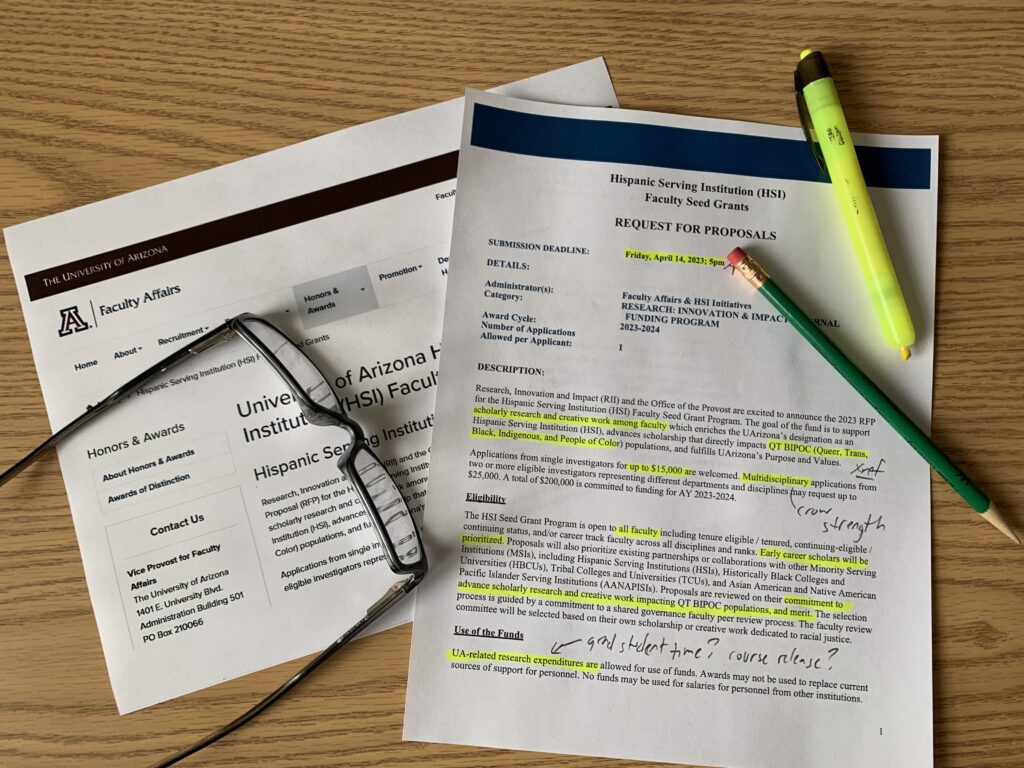By Alec Horner and Sarah Buwick

Exciting things are happening with the Crow team at the University of Arizona this fall! Dr. Shelley Staples is supervising two major projects that have recently received internal funding: the Crow Corpus Pedagogy Workshop and MACAWS.
The Hispanic Serving Institution (HSI) grant was awarded to the Arizona team for Dr. Staples’ teacher training and materials development project, the Crow Corpus Pedagogy Workshop. The project consists of a seven week asynchronous course that trains teachers to use the Crow corpus to develop course materials for their writing classrooms. The four educators participating in the project teach first-year writing courses across multiple higher education institutions located in Arizona.
The main goals of this project are to promote culturally responsive asset-oriented pedagogy, which focuses on students’ strengths rather than their weaknesses, and critical language awareness, which advocates for flexibility when it comes to standard writing rules and encourages students to write freely and organically. Currently, Arizona Crowbird Anh Dang is providing feedback to the participating instructors on their developed materials. As the HSI grant is strongly focused on investigation and study, the Arizona team will conduct further research within the project in the near future.
The Multilingual Academic Corpus of Assignments: Writing & Speech (MACAWS) is a corpus and repository that contains student samples and pedagogical materials from classroom work conducted in Portuguese and Russian language courses. MACAWS was built on the same framework as the Crow corpus and repository and has been one of Dr. Staples’ ongoing projects since 2018. Three PhD students at the University of Arizona are actively involved with the project, two working with Russian language courses and one with Portuguese. Currently, Portuguese is being piloted at the University of Arizona while Russian is being taught at various universities across the state. The next step for MACAWS is continuing implementation and getting more participants, building on the five workshops conducted this fall.
While the research demands attention, winning a grant introduces other work, too. “Sometimes the biggest challenges from a grant aren’t in data collection or recruitment,” explained Dr. Staples. “Running the grant and budgeting the money takes a lot of time, too.” For instance, previous grants used for the Crow Corpus Pedagogy Workshop haven’t had a research component, and while it was easy to get instructors interested in the courses, it’s been a challenge to get them interested in participating in the study as well. Because of this, the Arizona team has begun to look outside of the University of Arizona for participants, utilizing established connections within their networks. But Dr. Staples is still confident the program will be a success this time as well. She’s also excited for what’s coming up this spring. Dr. Staples will continue Crow Fellows with the same group of instructors and applied for a grant this past September, which she’ll hear back about in January. The MACAWS team is working towards a bigger NEH grant, which would go towards development and implementation of classroom materials. Additional workshops conducted by MACAWS team members Valentina Vinokurova and Mariana Centanin Bertho are also planned for the spring.